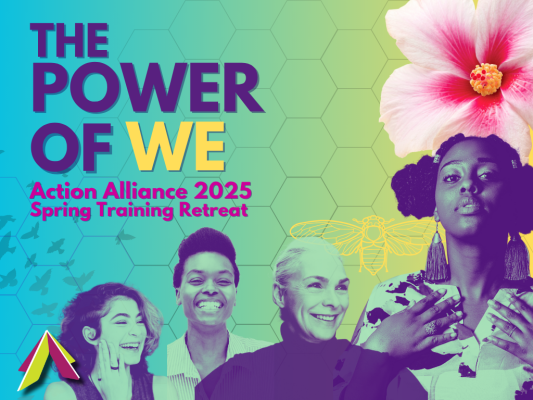Start a Search:
Author: Action Alliance
The Intersection of Spirituality, Religion And Intimate Partner Violence in the African American Community
Black women look to their spiritual roots for solace and relief when coping with intimate partner violence. This article explores the roles of the Black church in addressing intimate partner violence. It offers suggestions for clergy on how they can facilitate healing for survivors and address perpetrators. It concludes with a set of recommendations for domestic violence and sexual assault service providers on how they can incorporate spiritual elements into their programs.
The Intersections Between Intimate Partner Violence and HIV/AIDS
The National Online Resource Center on Violence Against Women has compiled a Special Collections series on the Intersections Between Intimate Partner Violence and HIV/AIDS. The Special Collection series includes terms and definitions, impact on at-risk populations, where to get tested, and the various articles discussing the intersection of intimate partner violence and HIV/AIDS.
http://www.vawnet.org/special-collections/DV-HIV.php
The Power of We: 2025 Action Alliance Training Retreat Resources

For attendees of the 2025 Training Retreat - The Power of We - here are some of the resoures shared during the gathering in Natural Bridge, VA
From Caitlin Bradley's keynote:
Information about river safety, which includes info about low head dams: https://jamesriverpark.org/riversafety/
Book recommendation "When No Thing Works" by Norma Wong
From the Supporting Trans Survivors Workshop:
https://forwardtogether.org/
https://www.acluva.org/
https://equalityvirginia.org/
https://forge-forward.org/
Gender Affirming Health Care | Virginia League for Planned Parenthood
https://transequality.org/
https://lambdalegal.org/
https://transgenderlawcenter.org
https://translifeline.org/
https://heshezewe.org/ https://swvalgbtqhistory.org/
Virginia Anti-Violence Project
https://www.thetrevorproject.org/
Virginia Department of Health Trans Resource and Referral List
https://www.nsvrc.org/blogs/resources-and-support-transgender-survivors
https://incite-national.org/
https://blacktransmen.org/
https://www.tnlr.org/en/
https://pflag.org/
*The Action Alliance is not responsible for and does not endorse any content found on any site linked here.
The Relationship Between Intimate Partner Violence and Substance Use: An Applied Research Paper
This article provides an overview of recent research studies looking at the relationship between intimate partner violence (IPV) and substance use. In addition to summarizing research findings, this article also takes a look at strengths and weaknesses of the existing research studying IPV and substance use. The article also provides recommendations for moving forward and next steps.
Published: 2015
The article is a part of the work of the National Center on Domestic Violence, Trauma & Mental Health. To find out more about the work of the NCDVTMH visit their website at www.nationalcenterdvtraumamh.org.
The State of Violence in Lesbian, Gay, Bisexual, Transgender, and Queer Communities of Virginia
Report of a 10-month study completead in 2008 and conducted by the Virginia Anti-Violence Project. The study included a survey of 1,000 individuals who identified as LGBTQ Virginians and addressed their experiences of sexual, intimate partner, and hate violence. They study also included a questionnaire for sexual and domestic violence agencies and LGBTQ service organizations regarding the services they offer LGBTQ individuals experiencing violence. 59 pages, includes survey and questionnaire.

